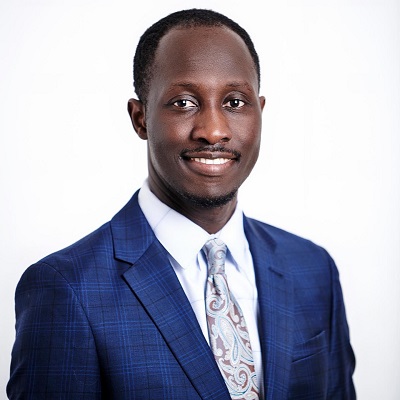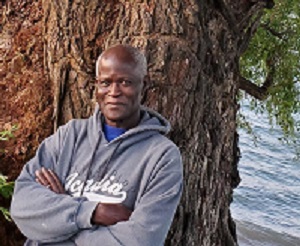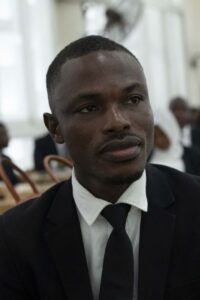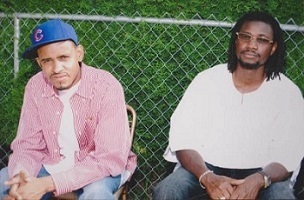Group Yoga exercise training
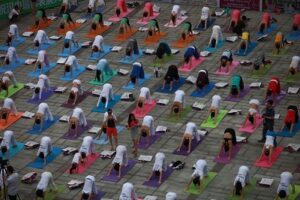 Yoga has evolved to become one of the most commonly used complementary and alternative health practices in the world. Today, Yoga is even more popular than chiropractic adjustments, osteopathic manipulations, meditation, herbal treatments and massage therapy.
Yoga has evolved to become one of the most commonly used complementary and alternative health practices in the world. Today, Yoga is even more popular than chiropractic adjustments, osteopathic manipulations, meditation, herbal treatments and massage therapy.
A 2012 article in the New York Times authored by William J. Broad, created a controversy on Yoga suggesting that some people get seriously injured, or even die, on their Yoga mats. How true is this? Our extensive review of literature revealed that the article by William Broad, adapted from the book The Science of Yoga: The Risks and Rewards, which suggested that Yoga caused widespread harm to its practitioners; from ruptured disks to stroke to brain injury, was largely based on selected anecdotes. That same year, it was also reported that more than 20 million Americans practiced Yoga, making it one of the most popular forms of exercise. It has also been reported by Neil MacFarquhar (2015) in the New York Times that Vladimir Putin, a devotee of “macho sports,” added downward dog to his repertoire. The question here is whether Yoga affects our health as compared to other exercises such as tai chi and meditation. In this article, we explore what Yoga is, together with its scientific underpinning from a purely objective standpoint on the International Day of Yoga.
First ever Yoga study
Patel and North, (1975) conducted the first randomized trial on Yoga in which was published in The Lancet. The study found that Yoga was more effective than relaxation for reducing high blood pressure. That trial was however a retrospective study. Further, all the participants already had high blood pressure and the study only involved 34 people, making it difficult to know the effect of Yoga on a larger prospective trial of healthy people. We examine this in this article.

Yoga, Origin
Yoga is derived from the root yuj
The Sanskrit word Yoga is derived from the root “yuj”, which means ‘to attach, join, harness, yoke’. In the 4th Century BCE, there was a very renowned Sanskrit philologist, grammarian, and revered scholar in ancient India named Pāṇini. He wrote that the term Yoga could be derived from either of two roots: yujir Yoga (to yoke) or yuj samādhau (to concentrate). In the context of the Yoga Sutras, the root yuj samādhau (to concentrate) is considered the correct etymology by traditional commentators.
Yoga, Definition
According to the Vaiśeṣika Sūtra which was authored by the Hindu sage Kanada, also known as Kashyapa, Yoga is ‘pleasure and suffering arising as a result of the drawing together of the sense organs, the mind and objects. When that does not happen because the mind is in the self, there is no pleasure or suffering for one who is embodied’.
Katha Upanishad also defines Yoga as “when the five senses, along with the mind, remain still and the intellect is not active, that is known as the highest state. They consider Yoga to be firm restraint of the senses. Then one becomes un-distracted for Yoga is the arising and the passing away“.
Shrimad Bhagavad Gita is a 700-verse Hindu scripture that is part of the epic Mahabharata and is considered to be one of the holy scriptures for Hinduism. It captures Yoga as “Be equal minded in both success and failure. Such equanimity is called Yoga” (2.48).
To a lay man’s understanding, Yoga means ‘union’ or ‘connection’. Yoga is a state of connection and a body of techniques that allow us to connect to anything. The practice aims to create union between body, mind and spirit, as well as between the individual self and universal consciousness. Such a union tends to neutralize ego-driven thoughts and behaviors, creating a sense of spiritual awakening. Yoga combines physical exercises, mental meditation and breathing techniques to strengthen the muscles and relieve stress. The secret of Yoga is awareness and consciousness of wellbeing.
Patañjali, also called Gonardiya, or Gonikaputra, was a sage in Ancient India who outlined an eightfold path of Yoga which offers a guide to individuals who are dedicated to creating a union between body, mind and spirit.
Yoga: Practices
Yamas – Five universal, ethical and moral observances to live by (nonviolence, truthfulness, non-stealing, continence and non-covetousness)
Niyamas – Five spiritual and self-discipline observances (cleanliness, contentment, spiritual austerities, study of scriptures and surrender to God)
Asana – physical posture, originally intended only for seated meditation, but more recently adapted to encompass all physical Yoga practices
Pranayama – breathing exercises to control the flow of prana (vital life force)
Pratyahara – Withdrawal of the senses
Dharana – Single pointed concentration
Dhyana – Meditation
Samadhi – Liberation or blissful union with the Divine
Yoga: Types
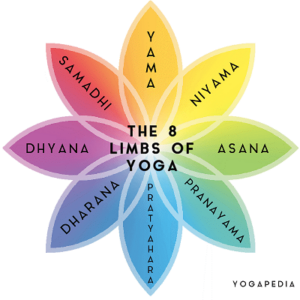
Types of Yoga
Hatha Yoga
Hatha is the Sanskrit word meaning force, which works on the harmony between the chakras and energy points. Hatha Yoga comprises many physical postures and positions that balance the body and mind. Hatha Yoga purifies and heals our mental system. Regular practice of Hatha leads to weight loss and toned muscles.

Ashtanga Yoga
Of the many Yoga forms, Ashtanga is one of the most athletic forms of Yoga. Ashtanga Yoga is a dynamic, set sequence of poses, breathing, and focal points. Ashtanga Yoga has eight pillars: Principles, personal discipline, asana and postures, pranayama, withdrawal, concentration, meditation and salvation.

Vinyasa Yoga
Vinyasa Yoga is a good choice for people who like high-intensity exercises. In addition, Vinyasa Yoga is ideal for anxiety, depression, blood pressure and sleep. Meditation is a part of advanced vinyasa Yoga practices, making the form more mindful. Vinyasa Yoga is a good choice for people who like high-intensity exercises.

Kundalini Yoga
Kundalini Yoga is known as Yoga of Awareness. The term “Kundalini” comes from the Sanskrit word “kundal”, which means “circular”. Kundalini Yoga is a form of Yoga that involves chanting, singing, breathing exercises, and repetitive poses. Compared with other forms of Yoga, Kundalini Yoga is a more spiritual practice.
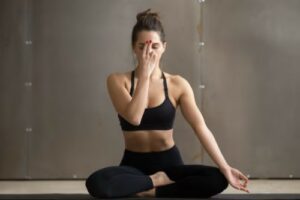
Iyengar Yoga
Iyengar is a form of hatha Yoga that focuses on proper alignment and precise technique. Iyengar Yoga has effectively treated musculoskeletal disorders and disabilities of the spine. Iyengar Yoga helps in the management of gynecological and gastroenterological diseases.

The Science behind Yoga
Yoga, Flexibility support

Studies demonstrate that Yoga aids flexibility
Two leading organizations; Yoga Journal and Yoga Alliance (2016) conducted a global survey examining a variety of statistics about Yoga in an attempt to quantify its value amid ever-increasing popularity. They found that, the reason people opted for Yoga was to make them flexible.
Additionally, two studies (Amin and Goodman, 2013; Polsgrove et al., 2016) also found that being flexible is a significant aspect of physical health. The study was of the view that, though many Yoga types exist, the lowest intensity styles have been found to increase flexibility.
A recent study on flexibility by Sivaramakrishnan et al., (2019) found that Yoga appears to be good in improving flexibility in adults aged 65 and older.
Yoga and Stress

Yoga aids in stress management, according to studies
High levels of stress have become a major issue in Ghana and the world at large. The science suggests that people battling stress can benefit from Yoga. This has been supported by Shohani et al., (2018) which found that Yoga, especially asana, is excellent in reducing stress. Apart from the physical aspect, meditation, breath work, and auditory rituals, like chanting and sound baths, have all also been shown to significantly lessen tension and relieve stress (Goldsby et al.,2017).
Yoga, Mental Health

Movement-based Yoga therapies and breathing-based practices were found to significantly improve depressive symptoms.
Bridges & Sharma (2017) meta-analysis of 23 interventions looking at the effects of Yoga-based treatments on depressive symptoms overwhelmingly concluded that Yoga can now be considered an effective alternative treatment for MDD. Major depressive disorder (MDD) is one of the most common mental health disorders in the world. Another study by Streeter et al., (2017) also revealed that both movement-based Yoga therapies and breathing-based practices were found to significantly improve depressive symptoms.
Yoga and Inflammation

Studies demonstrate linkage between Yoga and cardiovascular health
According to Pahwa et al., (2021), there is a link between cardiovascular disease, diabetes and other chronic diseases to chronic inflammation. However, the good news is that, one review which examined 15 studies by Djalilova et al., (2018) found a common result: Yoga; of various styles, intensities, and durations; reduced the biochemical markers of inflammation across several chronic conditions.
Yoga and Strength

Yoga Study found improves strength in breast cancer, older adults, and children.
Apart from stretching and flexibility, some types of Yoga classes can also be considered strength-building. The review by Divya et al., (2019) found Yoga asana as a multimodal form of exercise. Other studies by Yagli et al., (2015) and Pereira et al., (2016) also found improved strength in breast cancer patients, older adults, and children. Additionally, another study by Harder et al., (2015) on air force personnel found Yoga to be an effective strength-building practice across many age groups of healthy participants.
Yoga and Anxiety

Yoga asana may be effective as an alternative treatment for anxiety disorders
Two studies (Duan-Porter et al., 2016; Shohani et al., 2018) held the view that Yoga asana may be effective as an alternative treatment for anxiety disorders, though all of the researchers requested additional replicated studies before conclusively stating as much. Additionally, one study by Ferreira-Vorkapic et al., (2018) found that Yoga nidra, which is a body scan/guided meditation, reduces symptoms of anxiety.
Yoga and Quality of Life

Yoga improves QOL
A study by Ediebah et al., (2018) found that Quality of Life is significant predictor of people’s longevity and patients’ likelihood of improvement when treated for a chronic illness or injury. A 2019 meta-analysis showed promising potential for Yoga to improve QOL in people with chronic pain.
Yoga, Immunity

Yoga boost immune health
One study by Natalie et al., (2019) found that Yoga fights inflammation and improves cell-mediated immunity.
Yoga, Balance

Constant Yoga practice may balance people (Jeter et al., 2014)
A review of the research conducted By Jeter et al., (2014) on healthy populations found that constant Yoga practice may balance people. Osth et al., (2019) research suggests Yoga can improve balance in older populations. However, more studies with large sample sizes are needed before a general conclusion can be drawn. Kristine et al., (2019) also found that Yoga asana can also be helpful at improving balance in people with brain injuries. Others such as, Adaptive Yoga or chair Yoga also support older people.
Yoga and Cardio Support

Yoga aids heart health
Pranayama, another aspect of Yoga normally term “yogic breathing,” plays significant role in heart health. Saoji et al., (2019) review of 1,400 studies examined the impact of pranayama. The review found that yogic breathing can improve the functioning of several systems in the body. The study additionally found that the cardiovascular system is one aspect which Yoga breathing supports. The study finally asserted that yogic breathing may actually influence the brain’s cardiorespiratory center to improve functioning.
Yoga and Sleep

Yoga improves sleep
In measured sleep, scientists examine a person’s ability to both fall asleep and stay asleep. This is because these are the two ways by which insomnia can affect people. Two studies (Dolezal et al., 2017; Wang et al. 2020) demonstrated that Yoga improves one’s ability to fall asleep and how deeply they stay asleep. The reason being that, Yoga has aftereffects of exercise together with mental calming and stress relief.
Two other studies (Datta et al., 2017; Moszeik et al., 2020) also found that, apart from Yoga improving anxiety, there are many studies that demonstrate that Yoga nidra purposely helps in improving sleep.
Yoga and Self Esteem

Yoga enhances self esteem
For those battling low self-esteem; it appears Yoga is your friend. Two studies (Neumark-Sztainer et al., 2018; Neumark-Sztainer et al., 2018) demonstrated positive results in improving one’s self-esteem and perceived body image with the help of Yoga. One recent study, Rizzuto et al., (2021) demonstrates promising evidence that Yoga could help with the accompanying symptoms of obsession, anxiety, and depression in patients with anorexia nervosa.
Yoga and Osteoporosis

Ezrin (2021) article explains that, in Plank Pose, which is an upper pushup position, the arms, trunk, and legs are all engaged, without shortening or lengthening as they would if you were moving through a pushup. Florio et al., (2017) study also found that, in Warrior II, one holds a position with the lead leg bent at both the hip and knee. In these Isometric exercises, especially when performed with the joints in flexion, the study found yoga to increase bone density.
Yoga asana may also help reverse bone loss associated with osteopenia and osteoporosis. This was demonstrated in a study by Lu et al., (2016) which found that just 12 minutes of Yoga per day can significantly improve bone health. Despite the proven positive impacts of Yoga on bone density, there some studies which also revealed mixed results (some not so positive) (Lein et al., 2018).
Yoga, posture and body awareness
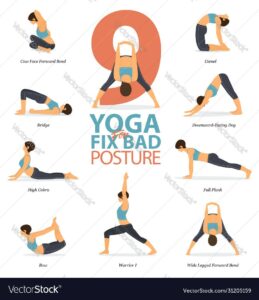
A recent review by Aalst et al., (2020) of 34 empirical studies found an emerging pattern; Yoga improved brain functioning in the centers responsible for interoception (recognizing the sensations within your body) and posture. A previous study by Grabara & Szopa (2015) also found that Yoga’s focus on mobility and flexibility can contribute to better alignment by releasing muscles that are often tight, such as the hamstrings, and improving mobility of the spine.
Yoga, and Brain Health
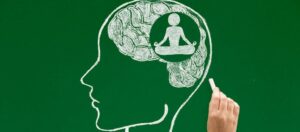
Yoga improves Brain Health
As a mind-body exercise, one review by Aalst et al., (2020) found that practicing Yoga activated areas of the brain responsible for motivation, executive functioning, attention, and neuroplasticity.
Yoga and burn out
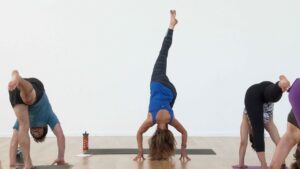
Yoga aids in the management of burn out
Heeter et al., (2021) study examined burnout among hospice workers during the COVID-19 pandemic and found that Yoga-based meditation interventions helped significantly reduce the effects of burnout by improving interoceptive awareness.
Market size of Yoga
According to the Economic Times, although Yoga originated from India, the US continues to be the biggest market for Yoga wear with estimated revenues of about $27 billion a year, growing at 20% annually.
The Expert Market research also reported that in 2020, the global Yoga market attained a value of nearly USD 41.05 billion. India is one of the leading exporters of mats and Yoga accessories. The Yoga accessory industry is worth about Rs 500-700 crore.
The training of Yogi is another big market. The Economic Times (2015) reports that, in towns such as Rishikesh and the adjoining village of Tapovan, almost every hotel and resort doubles up as a residential Yoga school. They package Yoga into 200 or 500-hour certificate courses with fees that range from $3,000 to $5,000 (Rs 1.8 lakh-Rs 3 lakh). Local farmers have turned landlords, renting houses to students or rooms for practice and setting up hotels and resorts. In Mysuru for instance, the city boasts of connections with two Yoga greats -Pattabhi Jois and BKS Iyengar. There are 65 Yoga institutes here, the most renowned being Pattabhi Jois Ashtanga Yoga Institute. During Yoga season, around 1,000 to 3,000 foreigners visit the city.
Rents in the area have gone up by around 50% in the last couple of years, and single bedroom units can fetch rents between Rs 15,000 and Rs 18,000.
Take Home: Key studies:
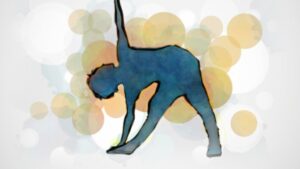
Yoga improves general wellness according to studies
In conclusion, two key aspects of Yoga exist: physical activity and meditation techniques which one can focus on. At the end of our extensive review of existing literature, we found the following major studies:
Patel and North (1975): Lancet — “Randomized controlled trial of Yoga and bio feedback in management of hypertension.” This is the first-ever randomized trial on Yoga, and it found that Yoga was more effective than relaxation in reducing high blood pressure.
1985: British Medical Journal — “Yoga for bronchial asthma: a controlled study”. This is the first randomized trial on Yoga for asthma, and it was one of the first to show the effects of Yoga on the inner organs.
1998: JAMA — “Yoga-based intervention for carpal tunnel syndrome.” This was a well-regarded randomized trial that showed the benefits of Yoga for carpal tunnel syndrome compared with wrist splinting and no intervention.
Sherman et al., (2005): Annals of Internal Medicine — “Comparing Yoga, exercise, and a self-care book for chronic low back pain.” This is the most important trial on Yoga for lower back pain and the first really high-quality trial on Yoga. Based on this trial, Yoga has become increasingly recognized as an effective treatment for chronic lower back pain.
Lakkireddy et al., (2013): Journal of the American College of Cardiology — “Effect of Yoga on arrhythmia burden, anxiety, depression, and quality of life in paroxysmal atrial fibrillation.” One of the first trials to show that Yoga may have an impact on life-threatening diseases such as atrial fibrillation.
Tracy and Hart (2013): Journal of Strength and Conditioning Research — “Bikram Yoga Training and Physical Fitness in Healthy Young Adults.” This trial found Bikram Yoga can improve strength and flexibility but not aerobic capacity.
2014: Journal of Clinical Oncology — “Randomized, controlled trial of Yoga in women with breast cancer undergoing radiotherapy.” This high-quality trial demonstrated Yoga can have benefits for women being treated for breast cancer.
Bower and Irwin (2015): Brain, Behavior, and Immunity — “Mind-body therapies and control of inflammatory biology.” A review of the evidence on Yoga and other mind-body activities, and their relationship to reducing inflammation.
Prof Raphael Nyarkotey Obu is a Professor of Naturopathic Healthcare and President of the Nyarkotey University College of Holistic Medicine & Technology (NUCHMT)/African Naturopathic Foundation. Dr. Mayukh Pandit is Board Certified Dental Surgeon/ Researcher in Anatomy and faculty member, India. E-mail: [email protected].
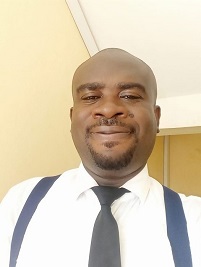

The Authors
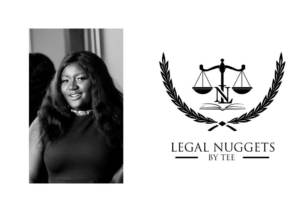

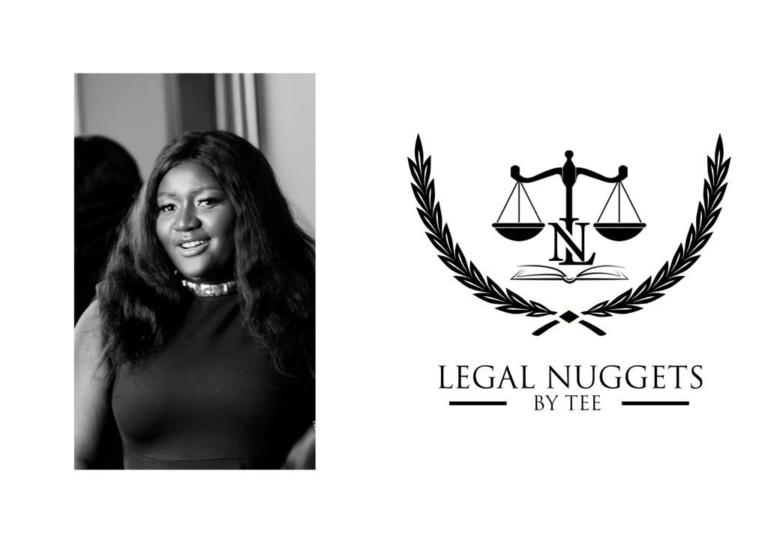
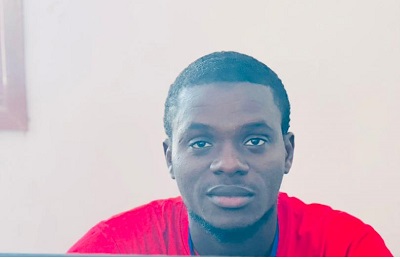



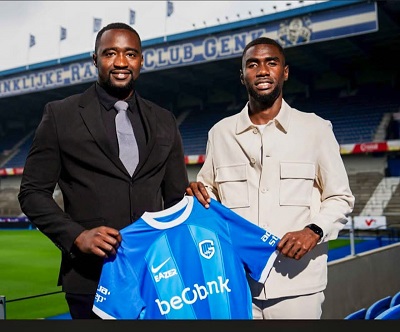

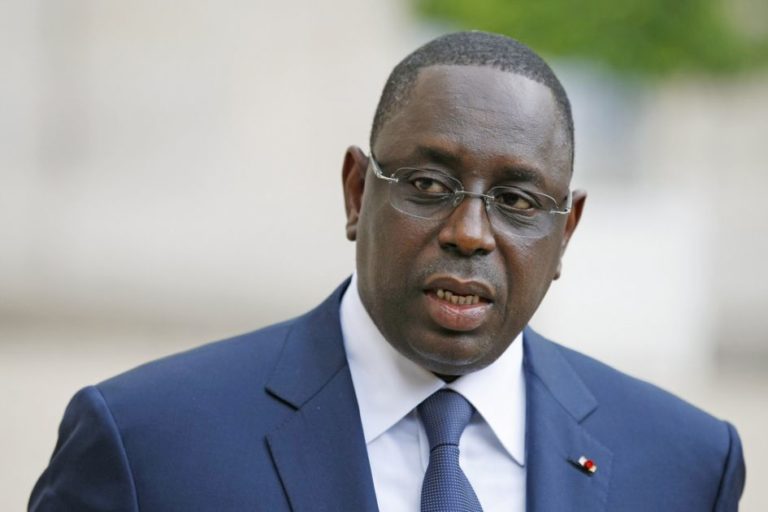
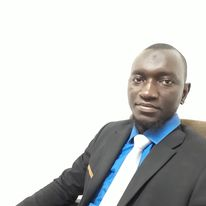

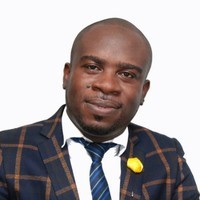

 Yoga has evolved to become one of the most commonly used complementary and alternative health practices in the world. Today, Yoga is even more popular than
Yoga has evolved to become one of the most commonly used complementary and alternative health practices in the world. Today, Yoga is even more popular than 


























